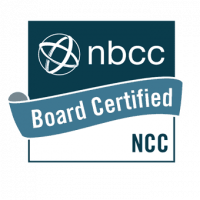10 Steps To Recover From Sexual Abuse

Sexual Abuse Recovery Consultation
Table of contents
Embarking on the path to sexual abuse recovery is a challenging and deeply personal journey. Survivors must bravely navigate the process of healing and reclaiming their lives. Facing the emotional and psychological scars left by trauma demands immense courage. “Empowering Healing: Unraveling the Impact of Therapy on Sexual Abuse Recovery” strives to offer support and guidance to survivors, their loved ones, and professionals in the field. By delving into the crucial role therapy plays in healing, we can foster a nurturing environment that encourages resilience, growth, and self-renewal. This offers a beacon of hope for those who have faced the darkness of abuse and seek a brighter, more empowered future.
What are the effects of sexual trauma?
Sexual trauma can have a wide range of short-term and long-term effects on survivors, impacting their emotional, psychological, and physical well-being. The specific effects may vary for each individual, but some common consequences of sexual trauma include:
Emotional effects: Survivors may experience intense feelings of fear, sadness, guilt, shame, anger, or confusion. These emotions can be overwhelming and may lead to mood swings, irritability, or emotional numbness. Many victims continually face self-esteem issues that make them susceptible to abusive relationships.
Psychological effects: Sexual trauma can lead to anxiety, depression, post-traumatic stress disorder (PTSD), or other mental health disorders. Survivors may have flashbacks or intrusive thoughts about the abuse, experience difficulty concentrating, or develop a negative self-image.
Relationship issues: Trust and intimacy can be challenging for survivors, leading to difficulties in forming and maintaining healthy relationships. They may also struggle with sexual dysfunction or fear of intimacy, affecting their ability to engage in consensual and fulfilling sexual experiences.
Physical effects: Sexual trauma can result in physical injuries, chronic pain, or health issues related to the abuse. Survivors may also experience somatic symptoms, such as headaches, stomachaches, or muscle tension, which can be manifestations of the psychological distress they are experiencing.
Coping mechanisms: To deal with the pain and distress caused by the trauma, survivors may develop maladaptive coping strategies, such as substance abuse, self-harm, or disordered eating patterns.
Social effects: Survivors may feel isolated or stigmatized due to their experiences, leading to withdrawal from friends, family, or social activities. They may also struggle with maintaining employment or pursuing educational opportunities.
It is essential to recognize that the effects of sexual trauma can be far-reaching and may persist for years or even a lifetime. However, with appropriate support and therapeutic intervention, many survivors can heal from their trauma and rebuild their lives.
Sexual Abuse & Recovery Therapist | Frisco, TX

MS, LPCC, LPC, NCC
Therapist | Licensed Professional Clinical Counselor | Nationally Certified Counselor
With an extensive background spanning over a decade in assisting sexual abuse survivors and working with violent offenders, I bring a wealth of experience and empathy as a dedicated sexual abuse recovery counselor. My mission is to help individuals heal from their trauma and achieve their personal recovery goals. I focus on cultivating trust, resilience, and emotional intelligence, equipping you with the tools to navigate the complexities of healing from sexual abuse and build a stronger, healthier mindset.
Megan holds full licensure in both Minnesota and Texas. You can find NorthStar Counseling & Therapy at 2591 Dallas Parkway, Suite 300, in Frisco, TX.
Facts and myths surrounding sexual assaults.
There are numerous myths surrounding sexual assault, which can lead to misunderstandings and perpetuate harmful stereotypes. Here are some common myths and the facts that debunk them:
Myth: Sexual assault only happens to women. Fact: Sexual assault can happen to anyone, regardless of their gender. Men and non-binary individuals can also be victims of sexual assault, although it may be underreported due to societal pressures and stigma.
Myth: Sexual assault is always committed by strangers. Fact: Most sexual assaults are committed by someone known to the victim, such as a friend, acquaintance, coworker, or family member. The misconception that perpetrators are always strangers can make it more difficult for survivors to come forward and report the assault.
Myth: Sexual assault occurs because of how a person is dressed or behaves. Fact: No one is responsible for being sexually assaulted except the perpetrator. The way a person dresses or behaves does not justify or excuse sexual assault. It is important to emphasize consent and personal boundaries instead of blaming the victim.
Myth: If a person did not physically resist or fight back, it wasn’t sexual assault. Fact: Many survivors may experience a freeze response during an assault, making it difficult or impossible for them to physically resist. Additionally, some victims might not resist out of fear for their safety. Consent is about clear and enthusiastic agreement, and the absence of resistance does not equal consent.
Myth: Sexual assault is just a miscommunication or misunderstanding. Fact: Sexual assault is an intentional act of violence and power, not a miscommunication.
Myth: False accusations of sexual assault are common. Fact: False accusations of sexual assault are rare, with research estimating that only 2-8% of reported cases are false. The belief that false accusations are common can discourage survivors from coming forward and contribute to a culture of disbelief when survivors share their experiences.
By dispelling these myths and educating ourselves on the facts about sexual assault, we can foster a more supportive and understanding environment for survivors and work towards preventing sexual violence in the future.
How to open up regarding what happened to you.
Acknowledging that you have experienced rape or sexual assault can be incredibly challenging. Societal stigmas may make you feel tainted or weak, and fear of judgment or others’ reactions may cause hesitation in disclosing the event. Keeping it a secret might seem easier, but silence prevents you from seeking help and prolongs feelings of victimization.
Confide in a trusted individual: Pretending the incident didn’t occur hinders your healing process and perpetuates a sense of shame. Although opening up can be intimidating, it is ultimately liberating. Choose someone who will provide support, empathy, and a calm demeanor when you share your story. Even if you do have a trusted confidant, consider speaking with a therapist or contacting a rape crisis hotline.
Combat feelings of helplessness and isolation: by reminding yourself of your inner strength and resilience. Trauma can make you feel vulnerable and powerless, but you possess the ability to overcome adversity. Reclaim your sense of control by engaging in acts of kindness, volunteering, donating blood, or supporting a friend in need or a cherished charity.
Think about joining a support group for rape or sexual abuse survivors. Such groups can alleviate feelings of loneliness and provide valuable insights into coping strategies and the road to recovery. If there are no local support groups, seek out online communities for additional assistance.
How to deal with the guilt and shame of a sexual assault.
Although you may rationally understand that you are not at fault for the rape or sexual assault, feelings of guilt or shame might persist. These emotions can emerge immediately after the incident or resurface years later. Recognizing the reality of the situation can help you fully accept that you are not to blame, as the assault was not your fault and you have no reason to feel ashamed.
Guilt and shame often arise from misunderstandings, such as:
Believing you could have prevented the assault. In hindsight, it’s easy to question your actions. However, during an assault, your mind and body are in shock, impairing your ability to think clearly. This often results in a “freeze” response. Avoid self-blame for this natural reaction to trauma—you did the best you could under the circumstances.
Trusting someone who later betrayed you. A major challenge following an assault by a known assailant is coping with the breach of trust. It’s common to question yourself and wonder if you overlooked warning signs. Remember, the attacker is solely responsible, and it’s not your fault for assuming they were a decent person. The guilt and shame should lie with the assailant, not you.
Consuming alcohol or not being cautious enough. No matter the situation, the only one responsible for the assault is the perpetrator. You neither asked for nor deserved the attack. Place responsibility where it belongs—on the rapist.
By addressing these misconceptions, you can work toward overcoming feelings of guilt and shame. You will instead be much more able to focus on the healing and recovery.
Are flashbacks and recurring memories common in sexual assaults?
Yes, flashbacks and recurring memories are common among survivors of sexual assault. These intrusive thoughts are a typical symptom of post-traumatic stress disorder (PTSD), which can develop after experiencing or witnessing a traumatic event, such as sexual assault.
Flashbacks involve reliving the traumatic event as if it were happening again, often accompanied by vivid sensory details and intense emotions. Recurring memories, on the other hand, are unwanted and persistent thoughts about the assault that can arise at any time, even when there is no apparent trigger. These intrusive memories can cause significant distress, anxiety, and discomfort for the survivor.
It is essential for survivors experiencing flashbacks or recurring memories to seek professional help, as these symptoms can interfere with daily life and overall well-being. Therapeutic interventions, such as cognitive-behavioral therapy (CBT), eye movement desensitization and reprocessing (EMDR), and trauma-focused therapy, can help survivors process their traumatic memories and develop coping strategies to manage these symptoms effectively.
To alleviate the stress caused by flashbacks and distressing memories:
Anticipate and prepare for potential triggers. Common triggers may include anniversaries, individuals or locations connected to the assault, and specific sights, sounds, or smells. Being aware of these triggers helps you better understand your reactions and take calming measures.
Be mindful of your body’s warning signs. Both your body and emotions can signal when you feel stressed or unsafe. Signs include tension, breath-holding, racing thoughts, shortness of breath, hot flashes, dizziness, and nausea.
Promptly take action to soothe yourself. When you notice any of the aforementioned symptoms, it’s crucial to act quickly to prevent them from escalating. Slowing down your breathing is one of the most effective methods to alleviate anxiety and panic.
How can I help someone recover from sexual trauma?
Reassure your loved one that you still love them and that the assault was not their fault. They are not responsible for what happened. Let them share their feelings at their own pace. Some may struggle to talk about the event, while others need to discuss it repeatedly. Offer to listen without forcing them to open up or stop revisiting the past. Encourage them to seek help without pressure. Help them regain control by suggesting support options but letting them make the final decision.
Display empathy and be mindful of physical intimacy. While touch may be difficult for them, it’s essential to maintain emotional closeness. Seek permission for physical contact and understand that they might need time to feel comfortable with sexual intimacy again. Take care of your own well-being. Stay calm, relaxed, and focused to better support your loved one. Manage your stress and seek support from others. Healing from sexual trauma takes time, and symptoms like flashbacks, nightmares, and fear may persist even after physical injuries have healed. To learn more, consider reading about helping someone with PTSD.
What is the process to recovering from sexual violence?
Recovering from sexual violence is a unique and individualized process for each survivor. However, there are some general steps that can be helpful in fostering healing and growth. These steps may include:
Acknowledging the trauma: Recognizing and accepting that the abuse happened is the first step in recovery. It’s essential for the survivor to understand that it was not their fault and that their feelings are valid.
Seeking support: Connecting with trusted friends, family members, or support groups can provide emotional support and understanding. Sharing one’s experience with others can help alleviate feelings of isolation and promote healing.
Professional help: Seeking therapy from a mental health professional who specializes in trauma and sexual abuse can be beneficial. Therapists can offer various approaches, including cognitive-behavioral therapy, trauma-focused therapy, and eye movement desensitization and reprocessing (EMDR), to help survivors process their emotions and develop coping strategies.
Self-care: Engaging in self-care activities, such as exercise, meditation, and journaling, can help improve emotional well-being and promote resilience. It’s important for survivors to prioritize their physical, emotional, and mental health throughout the recovery process.
Setting boundaries: Learning to establish and maintain healthy boundaries is crucial for survivors as they rebuild their sense of safety and control.
Rebuilding trust: Regaining trust in oneself and others can be a gradual process. It’s important to take time and develop trust at a comfortable pace, both in personal and professional relationships.
Forgiveness and acceptance: Forgiving oneself and accepting the past can be challenging but essential in moving forward. This doesn’t mean condoning the abuse, but rather releasing the burden of anger, guilt, and shame.
Empowerment: Embracing one’s strength and resilience, and recognizing personal growth, can be empowering and contribute to a positive self-image.
It’s important to remember that healing from sexual violence is a non-linear process and may involve setbacks. Patience, self-compassion, and support from others are vital during the journey toward recovery.
How to get started with sexual abuse therapy?
We will develop a tailored therapy plan for you, addressing your specific needs and objectives related to sexual abuse recovery. This approach will enable you to enact lasting changes and lead a more fulfilling life. NorthStar Counseling & Therapy is committed to supporting you on your journey towards healing and personal growth.

Megan Corrieri
Owner, Clinician, Wife & Mom
Share:
Your Guide to Domestic Abuse and Therapy
Domestic abuse survivors often grapple with deep emotional scars long after the immediate danger has passed. The journey to healing is personal, intricate, and unique to each individual. This article sheds light on the most effective therapeutic approaches tailored for survivors, from the evidence-backed Trauma-Focused Cognitive Behavioral Therapy to the empowering narrative sessions. Dive into an exploration of these therapeutic modalities, understanding their core principles and why they resonate powerfully with those seeking solace and strength after enduring abuse. Empowerment, validation, and a renewed sense of self-wait.
What Is Childhood Trauma | The Ultimate Guide To Healing
Meet With A Trauma Therapist Struggling with trauma from your childhood and need help? We specialize in uncovering the roots
PTSD Counseling & Therapy
Post-traumatic stress disorder (PTSD) is a mental health problem that some people develop after experiencing or witnessing a life-threatening event, like combat, a natural disaster, a car accident, or sexual assault. While it is normal to have upsetting memories, feel on edge, or have trouble sleeping after this kind of experience, if these symptoms last more than a few weeks, it may be PTSD.
There are several national resources and organizations dedicated to providing support and information for those recovering from sexual abuse. Some trusted resources include:
RAINN (Rape, Abuse & Incest National Network): As the largest anti-sexual violence organization in the United States, RAINN operates the National Sexual Assault Hotline (1-800-656-HOPE) and offers a wealth of resources, including a secure online hotline, educational materials, and support for survivors and their loved ones.
National Sexual Violence Resource Center (NSVRC): NSVRC serves as a comprehensive source of information, resources, and research on sexual violence prevention and intervention. They provide training materials, publications, and connections to local support services.
The National Domestic Violence Hotline: While primarily focused on domestic violence, this hotline also provides support for victims of sexual abuse. They offer a 24/7 helpline (1-800-799-SAFE) and a live chat service for individuals seeking help, resources, or information. Website:
The National Child Traumatic Stress Network (NCTSN): NCTSN is dedicated to raising the standard of care and increasing access to services for children and families who have experienced trauma, including sexual abuse. They offer resources, training, and support for professionals and families. Website:
MaleSurvivor: This organization is committed to providing resources, support, and information for male survivors of sexual abuse and assault. They offer online discussion forums, referrals to therapists, and workshops for survivors.
These resources can offer valuable assistance and guidance to sexual abuse survivors and their loved ones during the recovery process. Remember to reach out to local organizations and support groups in your area as well, as they can provide additional help and resources tailored to your community’s needs.







